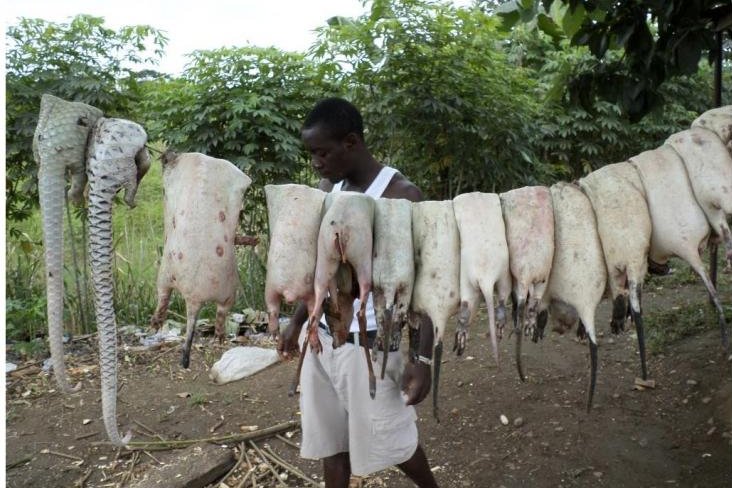Pangolin meat in Africa. (IUCN/APWG)
HANOI, Vietnam, July 30 (UPI) -- There are eight species of a pangolin in the world, and all eight are threatened by extinction, as they continue to be poached to death in Africa and Asia. The International Union for Conservation of Nature Species Survival Commission (IUCN) says the pangolin is the most illegally traded animal in the world.
The extinction of the scaly anteater-like creatures is fueled by Asia's dinner tables; in Vietnam, China and other parts of East Asia, the creature is highly prized for its meat, while it's keratin scales are important in traditional Chinese medicine.
Until this week, only seven of the eight pangolin species were threatened. But the last so-called safe species, the African ground pangolin, was downgraded from "least threatened" to "vulnerable."
The toothless scaled animals that roll into balls resemble anteaters, and though they're not as closely related to anteaters and sloths as once thought, they do use their long sticky tongue to dine mostly on ants and termites. They range in size -- depending on species -- from 3.5 pounds to about 73 pounds. The giant species stretches up to five feet in length.
With Asia's supply of pangolins running low, black market traders and poachers have moved on to Africa. Only days ago, customs officials raided a boat arriving in Vietnam from Sierra Leone. Inside was 1.4 tons of dried pangolin scales, harvested from some 10,000 dead pangolin.
"In the 21st Century we really should not be eating species to extinction -- there is simply no excuse for allowing this illegal trade to continue," said Professor Jonathan Baillie, a pangolin advocate with IUCN and director of conservation programming at the Zoological Society of London.
"A first vital step is for the Chinese and Vietnamese governments to conduct an inventory of their pangolin scale stocks and make this publicly available to prove that wild-caught pangolins are no longer supplying the commercial trade," said Baillie's colleague Dan Challender.
Baillie, Challender and others say conservationists must act fast, before 80 million years of evolutionary history is erased.















